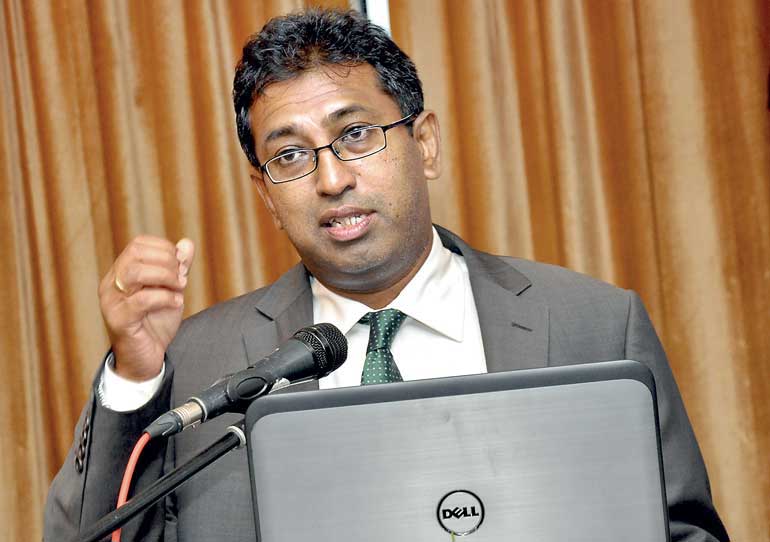Monday Feb 23, 2026
Monday Feb 23, 2026
Saturday, 30 April 2016 00:00 - - {{hitsCtrl.values.hits}}
 Deputy Foreign Minister Dr. Harsha de Silva has blasted former President Mahinda Rajapaksa for misleading the people on the new VAT increase, saying that no new increase of the VAT has been introduced to the education sector.
Deputy Foreign Minister Dr. Harsha de Silva has blasted former President Mahinda Rajapaksa for misleading the people on the new VAT increase, saying that no new increase of the VAT has been introduced to the education sector.
“MR, please don’t mislead the people. There is no VAT on any education service,” the Deputy Minister said in a Facebook post.
Kurunegala district MP and former President Mahinda Rajapaksa issuing a statement on Thursday said the people should rise up as one against the impending tax increases.
“Knowing very well there is no imposition of new VAT on education services (removal of VAT exclusions) he attempts to mislead people by saying that fees from “nursery school to tertiary level as well as private tuition classes” will see an increase,” the Deputy Minister pointed out.
“While benefitting thus from lower global commodity prices, the Government is now trying to increase the VAT rate from 11% to 15% and widen its applicability to hitherto exempt sectors like telecommunications, health and education. This will cause a 4% increase in the prices of goods on which VAT is already being charged and a sudden 15% increase in the costs of telephone and internet services, medical specialist channeling services, medical tests, private hospital care, private education from nursery school to tertiary level as well as private tuition classes. The applicability of the 2% Nation Building Tax has been extended to telecommunications and electricity as well. Telephone and internet services will see the highest price increases as it will be hit by the VAT as well as the NBT. The NBT on electricity will bring in huge revenues because it will be charged from all users of electricity,” Rajapaksa said in his statement.
“Come on... be honest... let us debate based on the truth, Mr. Ex President,” Dr. De Silva said.
The Government has assured that the VAT increase will not be a burden to the people. The Government has exempted the essential services including water, electricity as well as medicine while removing the tax concessions on telecommunications, private education and private health. Private education and private health care are considered as businesses in Sri Lanka while state education and healthcare are free to the citizens.